Since 1968, Gull Industries is the premier metal coating service provider throughout the central, southern region of North America. We pride ourselves as being a customer and market focused leader relative to customer services, product quality and environmental leadership. We apply 'Hi-Phos' E-Nickel at Gull Industries which is the most corrosion resistant version of all ENP processes available.

Cal-Aurum Industries provides metal plating and metal finishing systems to a variety of industries. We offer electroless nickel plating as well as gold, silver, rhodium, palladium, nickel, tin, tin/lead and copper plating. Our company formed in 1971, so we have years of experience and expertise to offer when we hear form you!

Since 1975, AOTCO Metal Finishing has been specializing in metal finishing systems and metal plating including tin, gold, copper, cadmium, chromium and electroless nickel plating. We are a metal finisher where quality and reliability count the most. Call us for more information.

More Metal Plating Companies
These different plating processes are typically distinguished based on the metal being deposited. For example, nickel plating is the process of depositing nickel alloys. In addition to nickel plating, there is also gold, silver, zinc, tin, chrome, and many other plating processes.
Two common categories of plating are electroplating and electroless plating. Electroplating creates a non-ionic metal coating on a substrate surface by supplying an ionic metal with electrons. This is typically achieved using a solution of the ionic metal, a positively charged anode and a negatively charged cathode which supplies the electrons to produce a non-ionic metal film.
Unlike electroplating, electroless plating does not require the external electrical components. Instead, a metal coating is created using a series of chemical reactions. This method of plating is most commonly used with nickel as the plating material but can also use silver, gold, or copper.
Plating is used for many different purposes and applications. It can be used to help prevent corrosion, to improve wear resistance, enhance solderability, alter conductivity, and improve or change other material properties. Specific properties can be achieved by choosing particular plating alloys.
For example, tin is a common plating material for the food processing industry because it is a non-toxic metal and is resistant to corrosion. In the electronics industry, gold is a valuable plating material due to its corrosion resistance and conductivity.




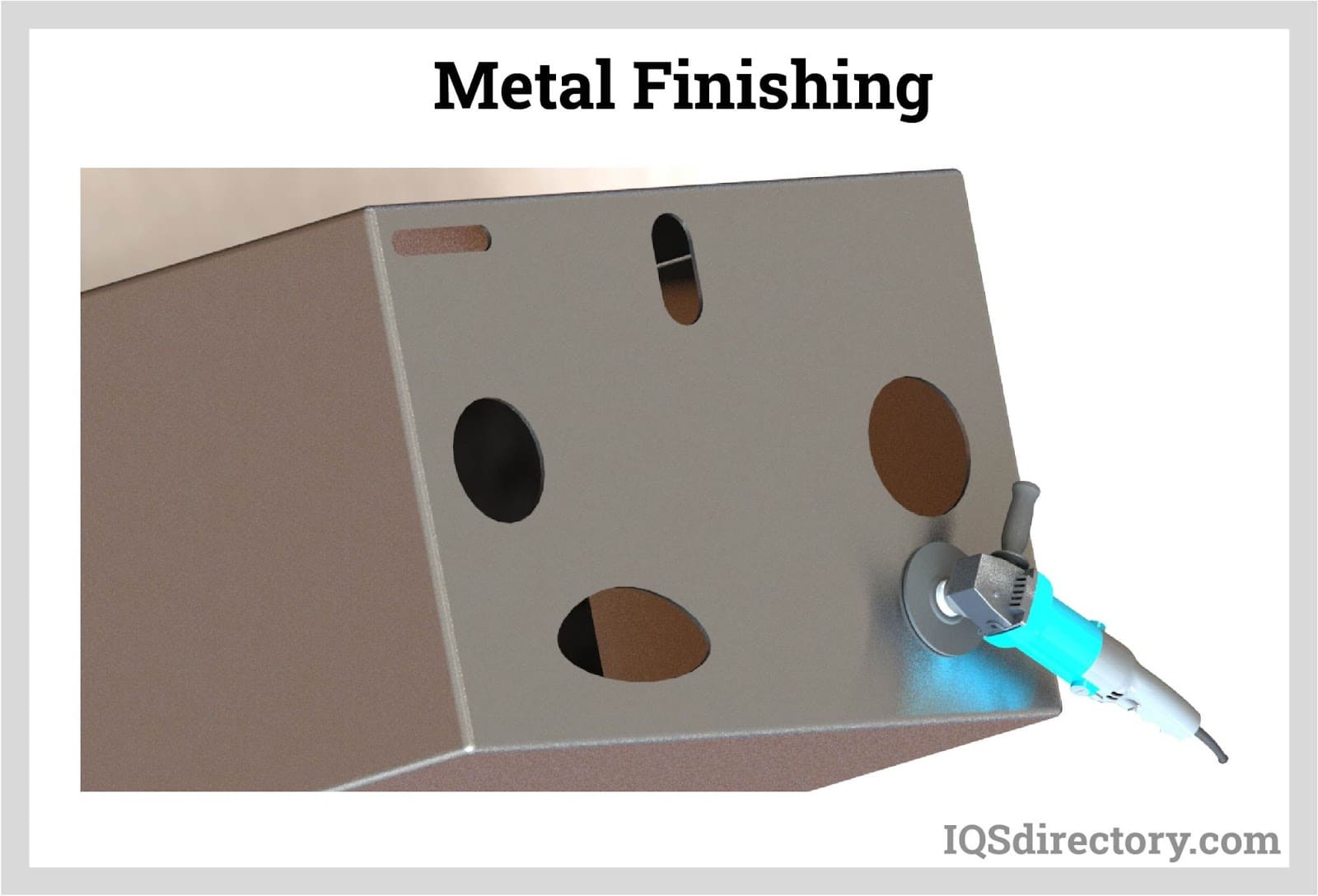
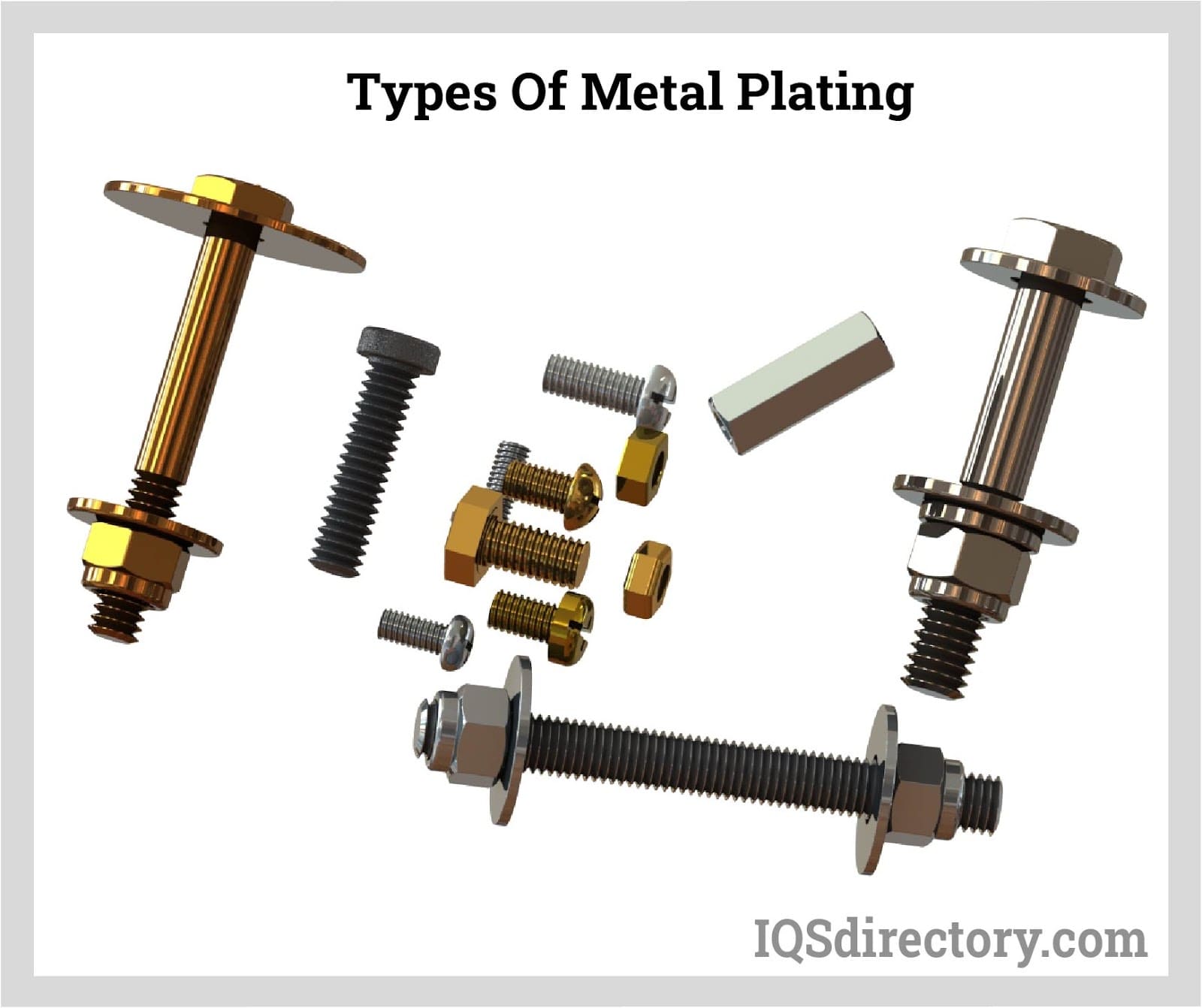
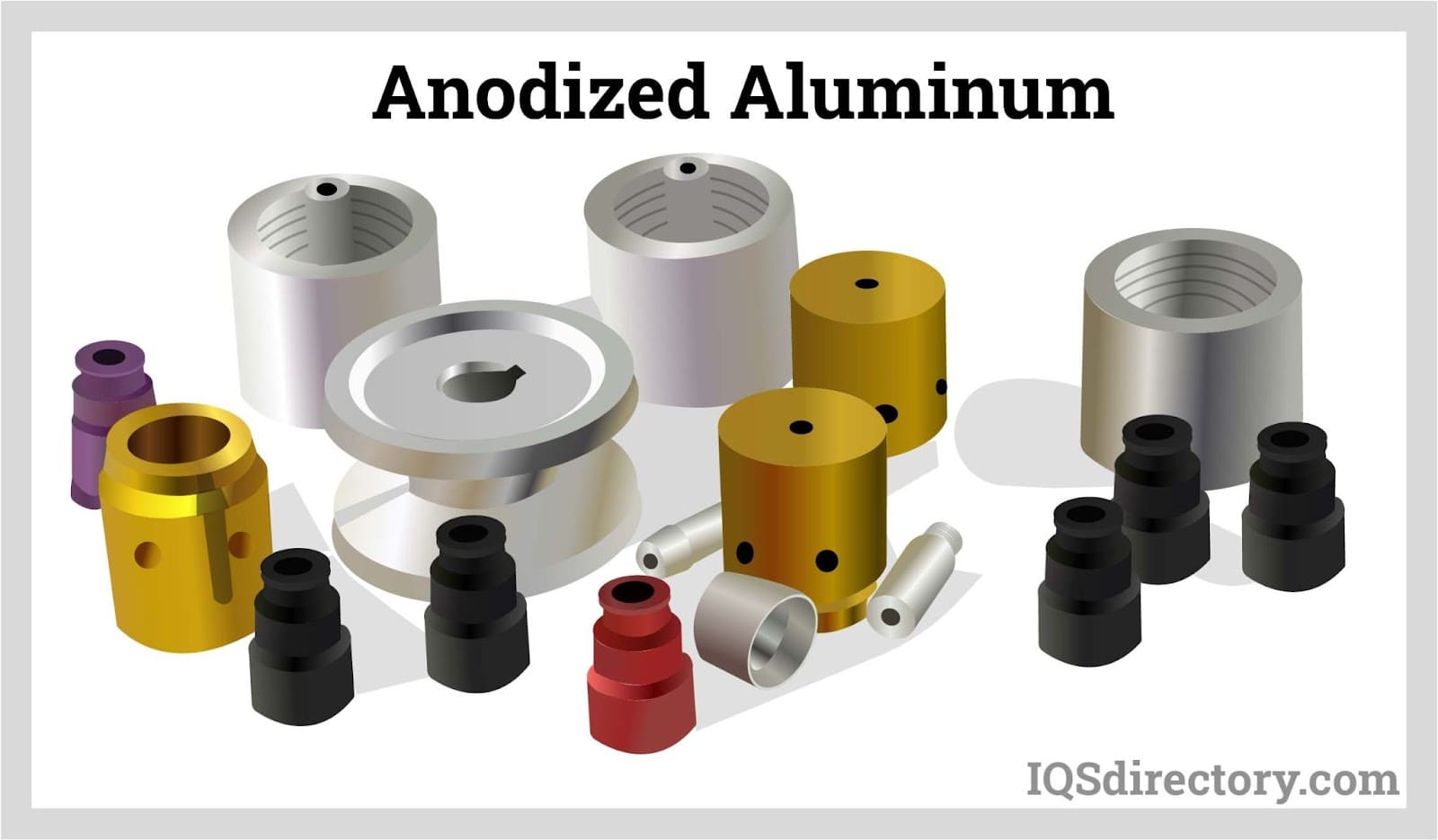
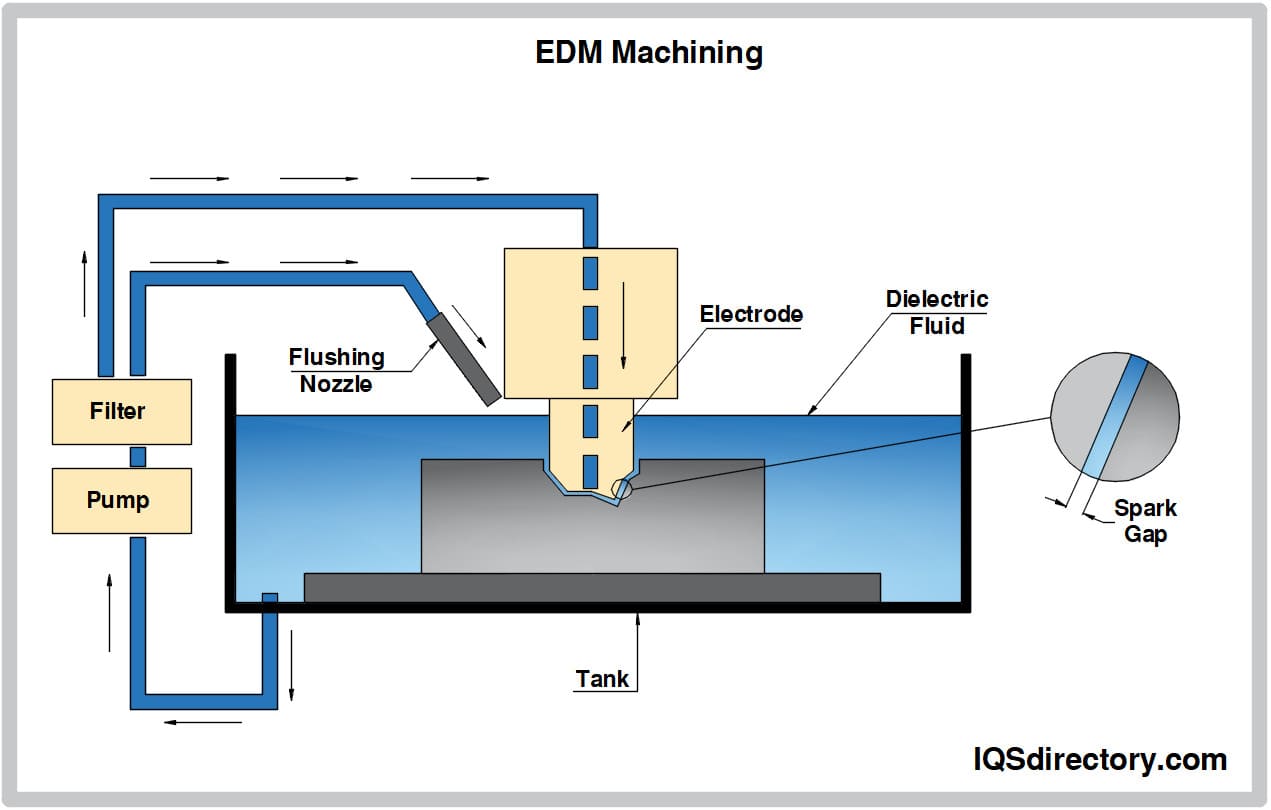
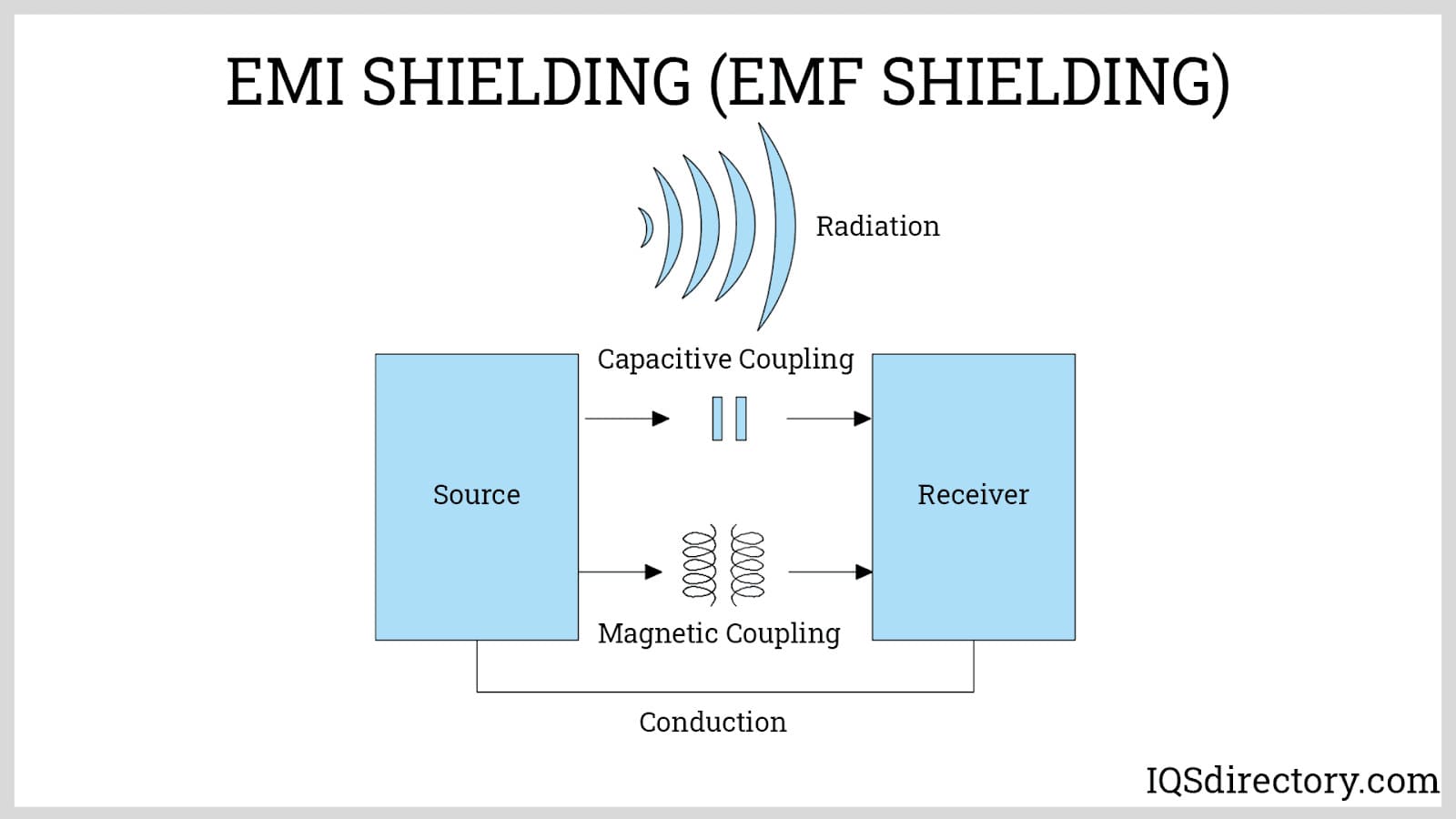
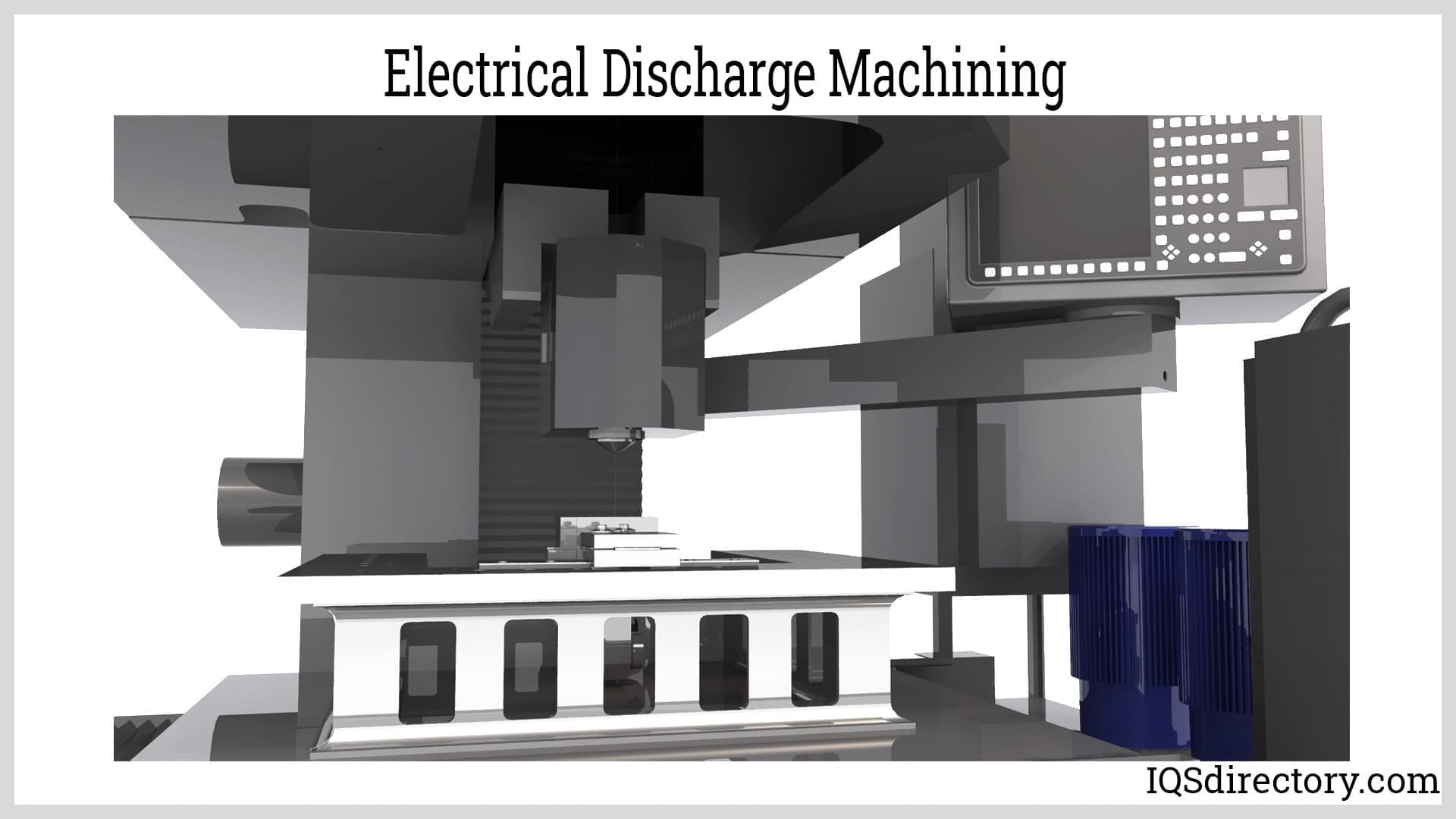
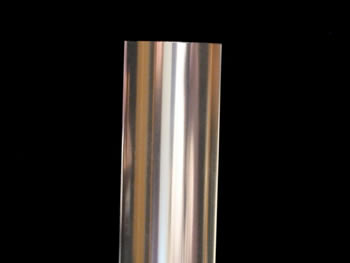 Aluminum Anodizing
Aluminum Anodizing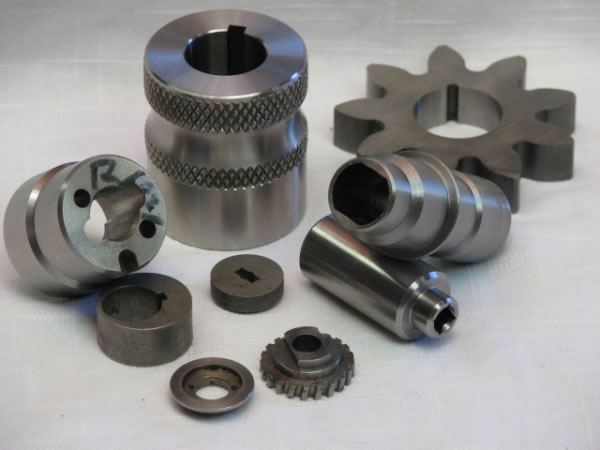 EDM
EDM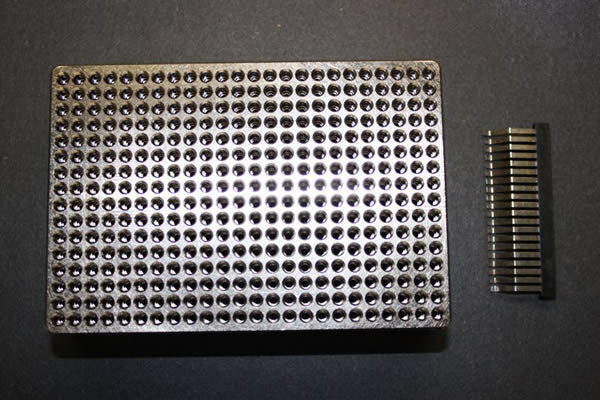 Electroless Nickel Plating
Electroless Nickel Plating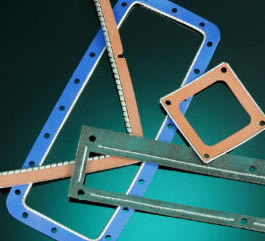 EMI Shielding
EMI Shielding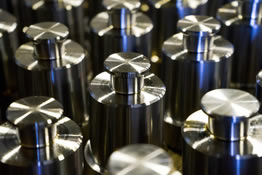 Heat Treating
Heat Treating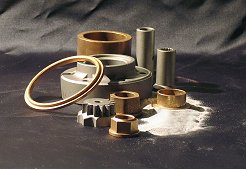 Metal Coating Services
Metal Coating Services Castings & Forgings
Castings & Forgings Bulk Material Handling
Bulk Material Handling Electrical & Electronic Components
Electrical & Electronic Components Flow Instrumentation
Flow Instrumentation Hardware
Hardware Material Handling Equipment
Material Handling Equipment Metal Cutting Services
Metal Cutting Services Metal Forming Services
Metal Forming Services Metal Suppliers
Metal Suppliers Motion Control Products
Motion Control Products Plant & Facility Equipment
Plant & Facility Equipment Plant & Facility Supplies
Plant & Facility Supplies Plastic Molding Processes
Plastic Molding Processes Pumps & Valves
Pumps & Valves Recycling Equipment
Recycling Equipment Rubber Products & Services
Rubber Products & Services